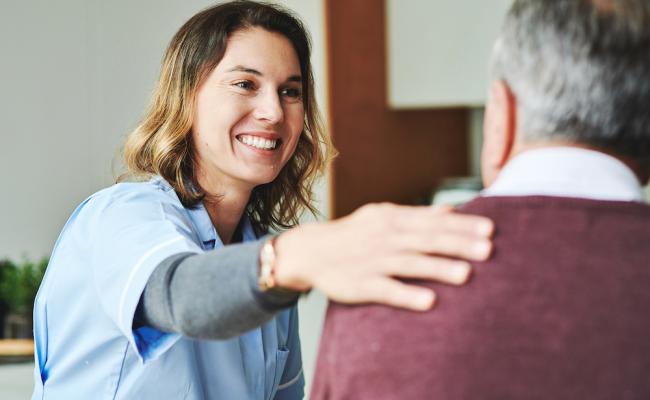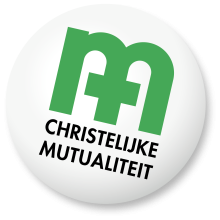Dementia contact point: a social worker testifies
Ann Janssens*, social worker, talks about her experience after receiving a call to contact someone with (suspected) dementia.

Ann Janssens* is a social worker at the Social Work Department. She received a notification via the dementia contact point to contact a person with (suspected of) dementia. We asked her experiences.
How do you get such a registration?
Ann Janssens: 'As soon as the contact point receives a registration, I receive a registration form. It contains the most important information I need to contact the person in question or the family. In the case of Mr Peeters, the report was made by his GP. He had noted that he would like to be contacted in advance. So I contacted him first.”
'The GP explained that he was concerned about Mr Peeters' home care situation and the capacity of his daughter Carine. He wanted to introduce her to the possibilities within home care and the alternatives when home care is no longer possible. She had already informed the doctor some time ago that caring for her father was becoming difficult. But she took no further steps in this regard herself. Based on this information, I was able to coordinate further steps and expectations.'
What happened afterwards?
'I contacted Carine, explained who I was and why I was calling, and asked if she would be interested in making an appointment. She was happy to oblige. During the first conversation I explained about the Social Work department and asked her how she felt about her father's situation. '
'It soon became clear that her father was struggling with problems in the early stages of dementia. Daily hygiene and self-care became real pain points. I gave her an initial overview of home care services that could provide support and explained how I could help find solutions. I provided her with a brochure about dementia and an overview of relevant services so that she could read everything again at home.'
Did it remain just one conversation?
'No. Shortly after our first contact, Carine started having health problems herself. That is one of the reasons why the GP and I raised the importance of nursing help with Mr Peeters. That was not easy because he himself does not see what problems there are. Ultimately, he agreed to call in a nurse. This was an important first step and a great relief for Carine.'
'We are currently preparing Carine's hospitalization together and how this period will be bridged for her father. Contact was made with the OCMW, which has a day care center close to Mr. Peeters' place of residence. An alternative is to engage family care. Mr. Peeters now also has a personal alarm device, which he can and wants to work with. '
Did you find this registration at the contact point useful?
'It is positive that Carine got to know our service. Otherwise she would be left alone with all the worries and questions. She did not know the Social Services department and did not know anything about the help she could receive in caring for her father. What we have organized in the meantime is very reassuring for her. Especially now that she has health problems herself, that extra help with her father's care is very important.'
'In the meantime, I am also investigating a number of rights, allowances and social benefits for which Mr. Peeters and Carine may be eligible. I assume that we can take further steps in this healthcare situation in the future.'
Do you have any tips for professionals when reporting to the contact point?
'I thought it would be useful to first contact the GP who made the report before contacting the family. All information you receive in advance is valuable to be able to place the right emphasis during the first contact. That is not standard when someone registers, but it sometimes has added value.'
*For privacy reasons, all names in this testimonial are fictitious.
